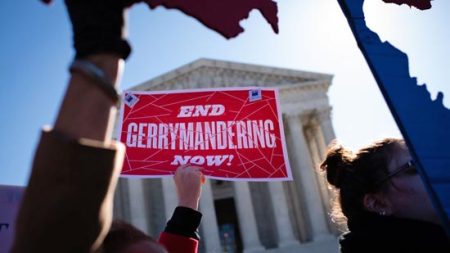US Supreme Court to Decide What Attorney Represents NC in Voter ID Case
Supreme Court is delaying a federal trial involving a NC NAACP lawsuit against a 2018 voter ID law scheduled to begin on Jan. 24, 2022 in Winston-Salem.
By Cash Michaels –
We’ve been down this road before.
In 2013, the North Carolina General Assembly passed a massive omnibus bill that contained a variety of voter restrictions, including a voter photo ID law.
The NC NAACP challenged that measure all the way to the US Fourth Circuit Court of Appeals, which in 2016 ruled that the Republican-led NC General Assembly’s voter ID restrictions were so discriminatory, they targeted Black voters “…with almost surgical precision.”

Then-NC Gov. Pat McCrory, a Republican, appealed that less-than-laudatory decision to the US Supreme Court, only to lose reelection. His successor, Democrat Roy Cooper, now in his second term, joined with NC Attorney General Josh Stein in withdrawing the GOP’s high court appeal.
Republican legislative leaders were not pleased, so they petitioned the US Supreme Court to allow them to represent the legislature in the voter ID case, instead of AG Stein, who is the state’s official attorney.
But Chief Justice John Roberts, on behalf of the Supreme Court, declined, though he added that the decision had nothing to do with the merits of the case.
Fast-forward to last week, when the Supreme Court announced that it was delaying a federal trial involving a NC NAACP lawsuit against a 2018 voter ID law scheduled to begin on Jan. 24, 2022 in Winston-Salem. The reason given is so the full Court can decide whether or not NC Republican lawmakers have standing to intervene and represent the state in defending it.
At issue is GOP legislative leaders’ dislike of AG Stein. House Speaker Tim Moore and Senate President pro tem Phil Berger, Sr., don’t trust him to vigorously and aggressively defend the 2018 Voter ID law because he is a Democrat. The Voter ID case itself will not be taken up by the Court.
Once again the federal appeals court had ruled against the Republican legislative leaders, forcing them to appeal to the now conservative-majority Supreme Court, where they stand a better chance of succeeding with the 6-3 right-leaning court.
The Supreme Court will hear arguments in June or July. Stay tuned.








